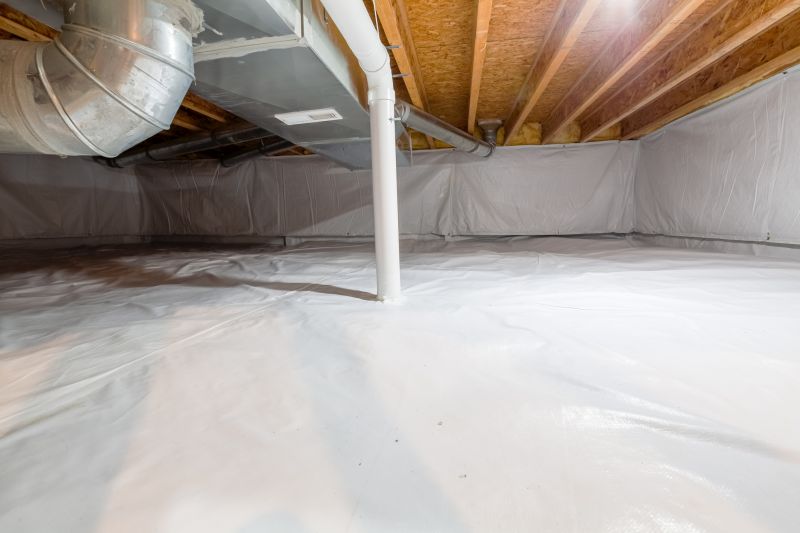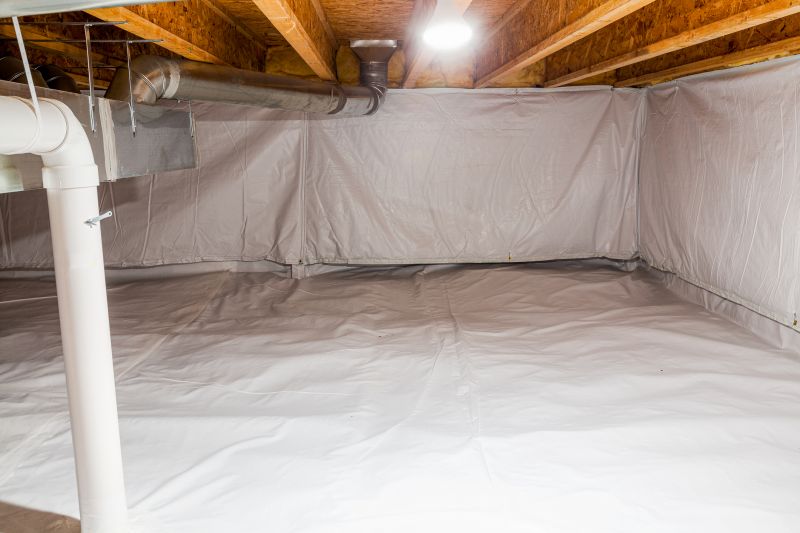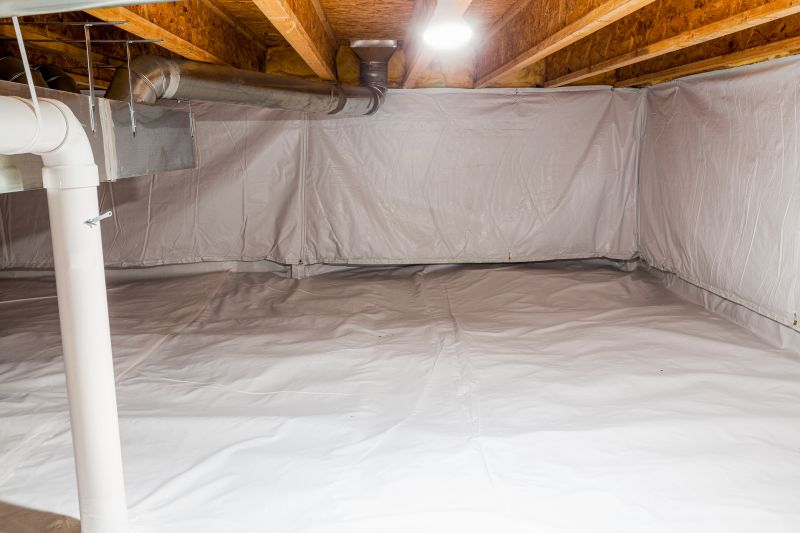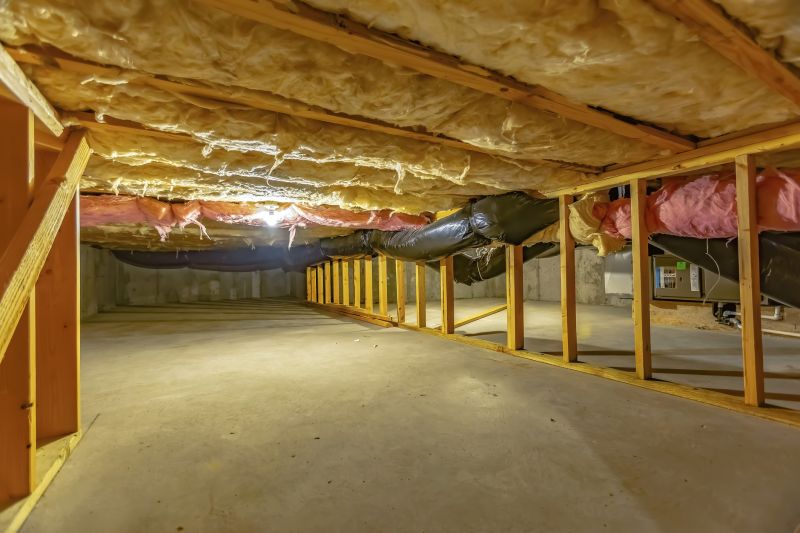Transform Your Crawlspace Into a Dry, Insulated Space
Crawlspace encapsulation involves sealing and insulating a crawlspace to protect the home from moisture, pests, and structural damage. Proper encapsulation can improve indoor air quality, reduce energy costs, and prevent mold growth. It is a vital step in maintaining a healthy and durable home environment.
Encapsulation prevents excess moisture from entering the crawlspace, reducing the risk of mold and wood rot which can compromise structural integrity.
Sealing the crawlspace reduces air leaks, leading to lower heating and cooling costs by maintaining consistent indoor temperatures.
A sealed environment discourages pests such as rodents and insects from nesting in the crawlspace, protecting the home from infestations.
Reducing mold and dust mites in the crawlspace improves indoor air quality, which can benefit allergy sufferers and respiratory health.

A fully encapsulated crawlspace with sealed vapor barriers and insulation, providing a clean and protected environment.

Interior view of a sealed crawlspace showing insulation and vapor barriers installed to prevent moisture intrusion.

Crawlspace with vent covers and sealing materials in place, reducing air exchange with the outside environment.

Close-up of insulation and sealing materials applied during the encapsulation process to ensure moisture and air control.
Failing to encapsulate a crawlspace can lead to significant issues such as increased moisture levels, mold growth, pest infestations, and higher energy bills. Studies show that homes with unsealed crawlspaces can experience energy costs up to 15% higher due to air leakage. Moisture problems can cause structural damage over time and contribute to health issues for occupants. Proper encapsulation offers a proactive approach to safeguarding the home and its inhabitants.
| Issue | Impact |
|---|---|
| Excess Moisture | Leads to mold growth, wood rot, and structural deterioration. |
| Higher Energy Costs | Increased heating and cooling expenses due to air leaks. |
| Pest Infestations | Provides nesting areas for rodents and insects. |
| Poor Indoor Air Quality | Mold, dust mites, and allergens circulate indoors. |
| Structural Damage | Moisture and pests weaken foundation components. |
| Health Risks | Respiratory issues and allergies from mold and dust. |
| Reduced Home Value | Potential for costly repairs and decreased property appeal. |
| Decreased Comfort | Inconsistent indoor temperatures and drafts. |
Encapsulating a crawlspace is a proven method to enhance home performance and protect against common issues associated with unsealed spaces. Proper sealing and insulation create a barrier against moisture and pests, leading to a healthier living environment and long-term savings. It is recommended to have a professional assessment to determine the best encapsulation solution tailored to specific needs.

